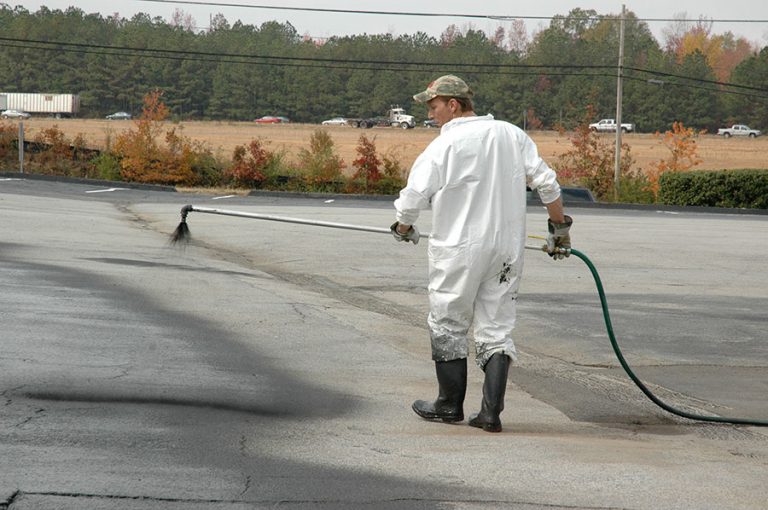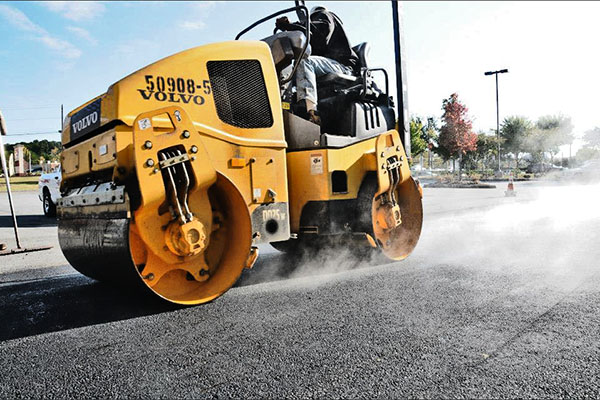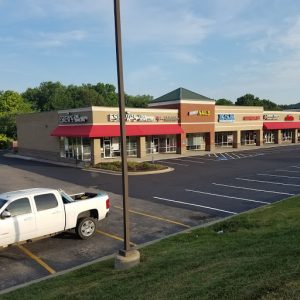For property managers, pavement asset management can be a challenge, especially when it comes to pavement maintenance budgeting. How much do you need to spend on maintaining your parking lot? When it it time to get maintenance? What kind of things does asphalt maintenance include, anyway?
The answer is to get a relationship with the most reputable local asphalt paving company in your area. In Leavenworth KS, All Pro Asphalt & Maintenance is the trusted pavement maintenance company, and we’re eager to help local property managers keep their parking lots and walkways safe and beautiful.
Asphalt Maintenance Tips for Budgeting
First, understand your goals.
It’s important to understand what you’re looking to get out of your pavement maintenance services, as situations call for different approaches, such as:
- Decide whether you want to improve your property with new paved areas or just keep up your current pavement.
- If you’re starting with aging pavement, you may need repairs like crack filling and asphalt resurfacing first.
- Newer pavement needs maintenance that focuses on preserving and protecting asphalt.
- All kinds of maintenance involve extending the life of your pavement.
Pavement inspections are key.
In order to keep up with the needs of your pavement, it’s important to look closely at it, performing your own visual inspections at least once a year. You should also get a professional opinion by scheduling regular pavement inspections from your local paving contractor, as they can spot potential problems before they develop.
Understand the cost factors of asphalt maintenance.
There are many things that can affect the cost of asphalt services, such as:
- The size (square footage) of your pavement
- The type of use your pavement is being put to
- The weight of the vehicles using the pavement
- The last time your pavement had repairs or sealcoating done
- Any existing issues such as potholes or cracking
Know that asphalt maintenance is an investment.
The initial sticker shock for pavement work can be a little scary, but it’s important to remember that, just like with a vehicle, getting things fixed earlier means you spend less money. Temporary fixes can just cover up a problem, which will grow and become worse over time, leading to expensive full depth asphalt replacement.
All Pro Asphalt & Maintenance, Leavenworth KS Pavement Maintenance Experts
The best way to keep your pavement asset management costs down is with regular maintenance, and the best way to do that is with the help of the best asphalt paving company in your local area.
When it’s time for sealcoating, sweeping, or any other type of maintenance, contact All Pro Asphalt & Maintenance!



 Oil stains may be a nuisance and visually distracting, but if you do not attend to them, they can have devastating consequences that may lead to major asphalt pavement repairs. Motor oil, transmission fluid, gasoline, hydraulic fluid, diesel fuel, grease and any other product containing petroleum or petroleum byproducts will eat away at the binder holding your pavement together. Caustic chemicals can create similar problems, so oils and chemicals should be removed as soon as they appear on the surface of your asphalt parking lot or driveway. Oil stains left unattended can also become a liability if someone slips and falls.
Oil stains may be a nuisance and visually distracting, but if you do not attend to them, they can have devastating consequences that may lead to major asphalt pavement repairs. Motor oil, transmission fluid, gasoline, hydraulic fluid, diesel fuel, grease and any other product containing petroleum or petroleum byproducts will eat away at the binder holding your pavement together. Caustic chemicals can create similar problems, so oils and chemicals should be removed as soon as they appear on the surface of your asphalt parking lot or driveway. Oil stains left unattended can also become a liability if someone slips and falls.  Asphalt pavement has been used in America for well over a century. It has become the leading choice for many pavement applications. Its reliability has increased over the decades through innovations in the production of the asphalt material and in application techniques for pavement surfaces. Today, a
Asphalt pavement has been used in America for well over a century. It has become the leading choice for many pavement applications. Its reliability has increased over the decades through innovations in the production of the asphalt material and in application techniques for pavement surfaces. Today, a  Numerous studies have proven that proactive maintenance saves money and extends the life of the item receiving the maintenance. This is true for a wide variety of items, including industrial equipment, heating and cooling systems, roofs, vehicles and lawn mowers. It is also true for asphalt pavement. If you are proactive about your
Numerous studies have proven that proactive maintenance saves money and extends the life of the item receiving the maintenance. This is true for a wide variety of items, including industrial equipment, heating and cooling systems, roofs, vehicles and lawn mowers. It is also true for asphalt pavement. If you are proactive about your  Professionally applied
Professionally applied  Many property managers state that the task that creates the most stress for them is the creation of an accurate, reasonable budget. Some categories are easier than others when it comes to deciding how much money will be needed. For example, they usually have a good idea of what salaries, office supplies and utilities will cost, but they have trouble deciding how much to budget for the
Many property managers state that the task that creates the most stress for them is the creation of an accurate, reasonable budget. Some categories are easier than others when it comes to deciding how much money will be needed. For example, they usually have a good idea of what salaries, office supplies and utilities will cost, but they have trouble deciding how much to budget for the  If you are responsible for a commercial parking lot, its appearance may not always top your list of concerns. However, your parking lot can speak volumes about your business, your attention to detail, and your concern for your customers and employees. Clearly defined parking stalls reduce the possibility of door dents and enhance your property’s curb appeal. Even one missing
If you are responsible for a commercial parking lot, its appearance may not always top your list of concerns. However, your parking lot can speak volumes about your business, your attention to detail, and your concern for your customers and employees. Clearly defined parking stalls reduce the possibility of door dents and enhance your property’s curb appeal. Even one missing  In a typical year, the Kansas City area receives more than 18 inches of snow during the winter months and approximately 39 inches of total precipitation annually. During the summer, daytime highs frequently exceed 90 degrees Fahrenheit. However, if you have lived in the area for a few years, you probably know that the weather is unpredictable. The record high stands at 113 degrees, while record lows of 23 degrees below zero have been measured. Freezing temperatures have been recorded in May, September and October. With such drastic seasonal changes, it is no wonder that the weather can play havoc with
In a typical year, the Kansas City area receives more than 18 inches of snow during the winter months and approximately 39 inches of total precipitation annually. During the summer, daytime highs frequently exceed 90 degrees Fahrenheit. However, if you have lived in the area for a few years, you probably know that the weather is unpredictable. The record high stands at 113 degrees, while record lows of 23 degrees below zero have been measured. Freezing temperatures have been recorded in May, September and October. With such drastic seasonal changes, it is no wonder that the weather can play havoc with  Business owners and managers sometimes have to make some difficult decisions. If you have a job vacancy, which of the two equally qualified candidates do you hire? Should you try to get another year out of the trucks used by your field technicians or trade them in? If an employee arrives late too many times, should you issue a verbal reprimand or a written one if you do not have a policy in place? However, with many budgets shrinking, the toughest questions many people face involve the preventive plan for
Business owners and managers sometimes have to make some difficult decisions. If you have a job vacancy, which of the two equally qualified candidates do you hire? Should you try to get another year out of the trucks used by your field technicians or trade them in? If an employee arrives late too many times, should you issue a verbal reprimand or a written one if you do not have a policy in place? However, with many budgets shrinking, the toughest questions many people face involve the preventive plan for 





